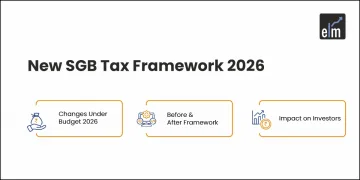If you’re giving a little more thought to how to reach your goals at the start of the new year, you’re not alone. It’s a common practice throughout the world of making financial resolutions and has been around for thousands of years.
New Year’s resolutions are often about physical and mental health: Work out more, eat less junk food, meditate once a day, quit smoking, and spend less time on social media.
But what about financial health?
Have you thought about improving your financial situation in 2024?
And while we think taking care of your financial health should be a focus year-round, the New Year is a fantastic opportunity to check in and evaluate how you might potentially improve your financial game.
Table of Contents
7 Financial Resolutions for 2024

1. Setting SMART Financial Goals For 2024
A vital first step in achieving financial success is setting SMART financial goals. The term SMART stands for Specific, Measurable, Achievable, Relevant, and Time-bound. It is a framework that helps turn abstract goals into concrete ones. Here’s how to use the SMART criteria to help you create your 2024 financial goals:
1. Specific (S): Define Clear Objectives
Instead of aiming to “save money,” be more specific about your goals. As an illustration, “Save Rs. 5,000 for an emergency fund” establishes a specific goal.
2. Measurable (M): Quantify Your Goals
To make it easier to monitor your progress, give your goals specific numbers. For example, the goal “Pay off Rs. 10,000 in credit card debt” is quantifiable and lets you track your progress.
3. Achievable (A): Set Realistic Targets
Make sure your objectives are reachable and reasonable. Although having ambition is admirable, having unrealistic goals can cause frustration. Setting a goal like “Increase monthly savings by 10%” is more reasonable than trying to reach an impractical 50% increase.
4. Relevant (R): Align Goals with Your Priorities
Make sure your financial ambitions are in line with your overall life goals. If purchasing a home is a top priority, “Save for a down payment on a house” would be a more appropriate aim than another unrelated financial objective.
5. Time-bound (T): Establish Deadlines
Establish deadlines for yourself to meet your objectives. This fosters a sense of urgency and facilitates monitoring advancement. The objective “Reduce student loan debt by Rs. 5,000 within the next 12 months” has a deadline.
2. Building a Budget for Financial Wellness
Creating a budget for financial well-being is a calculated procedure that starts with a thorough analysis of monthly spending and income sources.
Sort spending into necessary and optional categories, as well as fixed and variable costs. Establish attainable long- and short-term financial goals with associated expenditures and deadlines.
Set up money for emergencies and give paying off debt the first priority. Keep an eye on the budget and make any adjustments as needed to keep it within reasonable bounds and in line with your financial goals. For effective tracking, make use of applications or tools for budgeting.
Seek expert guidance as necessary, encouraging a flexible and long-term strategy to attain and preserve financial well-being.
3. Tackling Debt Strategically
A prudent approach to debt management is essential for financial well-being. List all of your debts first, paying off high-interest loans first. Set aside some money in your budget to pay off debt. Pay the minimum on certain debts while concentrating on paying off one loan at a time.
Think about the avalanche or snowball approach: eliminating the highest interest rate for efficiency or paying off the smallest debt first for motivation. Ask creditors for reduced interest rates or more flexible payment schedules.
Reduce wasteful spending to save up money for debt repayment. Remain disciplined and acknowledge accomplishments. Consulting with financial professionals might yield more situation-specific, situation-appropriate debt management techniques.
4. Boosting Savings and Investments
Increasing investments and savings is essential for financial expansion. Establish definite objectives first, whether they are long-term for significant life events or short-term for crises. Set aside a certain amount of your money in a special account to automate savings.
To increase your wealth, think about investing in high-yield savings accounts or stocks and bonds. Spread out the investments in your portfolio to efficiently handle risk. To safeguard your financial future, make consistent contributions to retirement funds.
Reduce wasteful spending and use the money saved for investments and savings. To ensure a solid financial foundation, stay up to date on market movements and consult with financial professionals.
5. Enhancing Financial Literacy
Improving one’s financial literacy is essential for people to make empowered and knowledgeable financial decisions. It entails comprehending basic ideas such as debt management, investing, saving, and budgeting. Increased financial literacy is a result of workshops, educational initiatives, and easily accessible materials.
A sense of financial stability is cultivated by learning about credit ratings, retirement planning, and investing methods. Effective budgeting and spending tracking can be facilitated by the use of applications and web solutions.
Improved financial literacy not only enables people to manage their personal finances skilfully but also cultivates a more financially conscious and resilient community, enabling people to accomplish their objectives and weather economic downturns.
6. Evaluating and Adjusting
A vital part of financial management is reviewing and modifying your budget. Examine your expenditure frequently in comparison to the allocated funds to find places where you could cut back or find areas where you are overspending. Evaluate if your financial objectives are being met, and make the necessary adjustments to your budget.
Your financial plan should be adjusted to account for shifting priorities or unforeseen costs since life circumstances change. When reallocating money, be adaptable and take changes in income or expenses into account.
Make use of tools for budgeting and keep regular tabs on your progress. By taking this proactive stance, you can be confident that your budget will always be a flexible instrument that supports your financial health and helps you reach your short- and long-term goals.
7. Incorporating Health and Wellness into Financial Planning
A comprehensive approach to well-being requires that health and wellness be taken into account while making financial plans. To encourage physical well-being, set aside money for wholesome food, gym memberships, and preventative medical treatment. It is advisable to think about funding mental health initiatives like counselling or wellness centres.
It’s essential to have enough health insurance to guard against unforeseen medical costs. People can save money on long-term healthcare by leading healthy lifestyles. Furthermore, a healthy staff may result in higher output and fewer sick days taken, both of which improve financial stability. Including decisions about one’s health when making financial plans promotes a sustainable and well-rounded approach to wellness.
Conclusion
In conclusion, the start of a new year presents a prime opportunity to revamp our financial habits and set the stage for a more secure future. The seven financial New Year’s resolutions outlined for 2024 provide a comprehensive guide to enhance fiscal well-being. From budgeting diligently and saving strategically to investing wisely and embracing financial literacy, these resolutions offer a roadmap to financial success.
For more Market Insights, visit StockEdge







